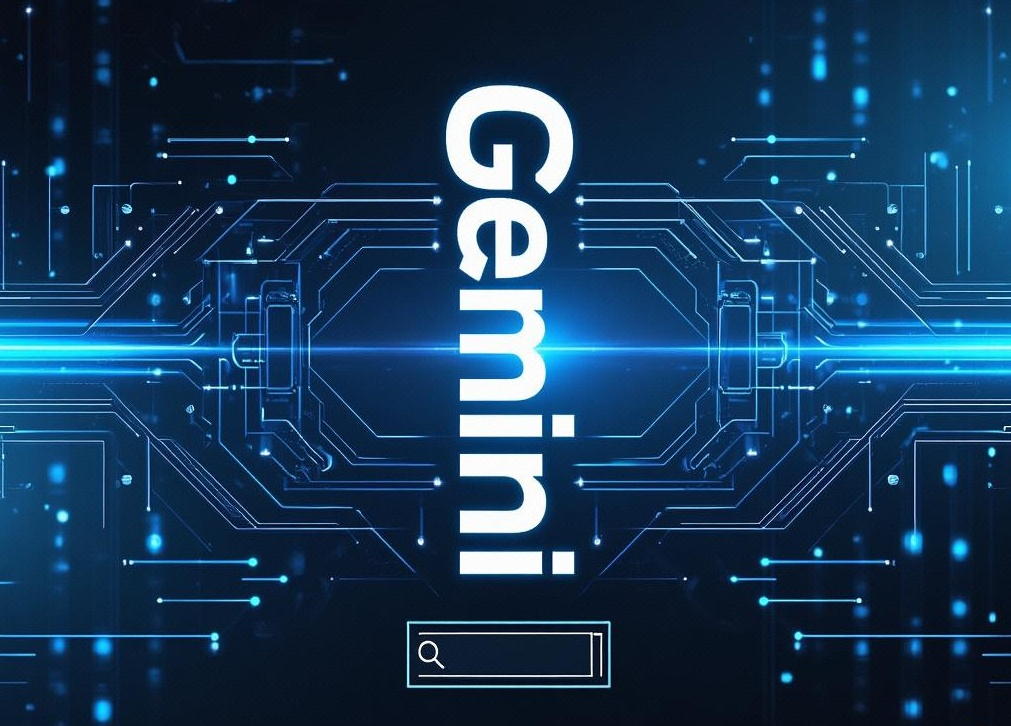Google’s AI Gambit : Gemini Takes Center Stage in the Tech Race
The AI landscape is undergoing a seismic shift, with tech giants like Google doubling down on innovation to reclaim their dominance. At the heart of this transformation is Google's Gemini series, a suite of advanced AI models poised to redefine how we interact with technology. For users exploring AI tools and trends on AI-Kit, Google’s recent moves—highlighted at the 2025 Google I/O Developer Conference—offer a glimpse into the future of AI-driven productivity, search, and creative applications.

Gemini 2.5 Pro: A Leap Forward in AI Performance
On May 28, 2025, Google unveiled the upgraded Gemini 2.5 Pro, a powerhouse in AI inference that quickly claimed the top spot on the LMSYS Arena leaderboard with a score of 1446. This marked a significant leap over competitors like OpenAI’s ChatGPT-4o (1405) and o3 (1409), with a rare double-digit score gap in a historically tight race. The model’s prowess in language processing, reasoning, and code generation makes it a standout for developers and businesses seeking robust AI solutions.
Why It Matters: For AI-Kit users, Gemini 2.5 Pro’s versatility signals its potential as a go-to tool for tasks ranging from coding to complex data analysis. Explore more AI development tools on our platform to see how Gemini stacks up.
Google I/O 2025: A Showcase of AI Ambition
The 2025 Google I/O Developer Conference, held on May 21, was a bold declaration of Google’s AI strategy. Titled “Innovation in the Open,” the event unveiled 23 updates spanning AI models, visual generation, AI agents, and even AI-powered glasses. At the core was the Gemini series, which Google CEO Sundar Pichai positioned as the backbone of the company’s ecosystem, integrating deeply with search, Chrome, and advertising.
Pichai’s vision is clear: transform Google from an information gateway into an AI assistant that anticipates and solves user needs. By embedding Gemini into Google Search, the company aims to deliver personalized results, advanced data analysis, and even AI-driven shopping assistance. This shift promises a seamless experience for users, blending the best of AI search tools with Google’s vast ecosystem.
Pro Tip: Curious about AI-enhanced search? Check out our curated list of AI search tools to discover alternatives like Perplexity and DeepSeek.
A Competitive Landscape: Google vs. OpenAI and Beyond
Google’s resurgence comes amid fierce competition. A year ago, OpenAI’s ChatGPT and GPT-4o dominated the AI conversation, with CEO Sam Altman publicly challenging Google’s efforts. However, OpenAI’s edge has softened in 2025. The rise of DeepSeek’s R1 model—adopted by giants like Amazon and Google itself—has shaken the industry, while OpenAI’s pivot back to nonprofit status and high-profile acquisitions signal a scramble to maintain relevance.
Google, meanwhile, faces pressure from emerging players like Anthropic and xAI in the AI agent space. Despite this, Google’s trump card remains its ecosystem. With Gemini APIs enabling seamless integration and a user base of over 4 billion monthly active users, Google’s infrastructure gives it a unique edge for deploying AI tools at scale.
External Insight: For a deeper dive into the LMSYS leaderboard, visit LMSYS.org to compare model performance.
Gemini’s Evolution: From Search to AI Assistant
The Gemini series isn’t just a technical upgrade—it’s a strategic pivot. Google’s updates include Gemini 2.5 Flash for lightweight tasks, Gemini 2.5 Pro Deep Think for complex reasoning, and Gemini Diffusion for visual generation. These models cater to diverse use cases, from developers building apps via Google AI Studio to businesses leveraging Vertex AI for enterprise solutions.
The most transformative change is in Google Search. By introducing an AI Mode in Chrome and enhancing search with AI summaries and personalized results, Google aims to rival the conversational capabilities of tools like ChatGPT and DeepSeek. As Pichai noted, “The search box is no longer the focus—Google wants to be your AI assistant, getting things done.”
Explore More: Discover how AI assistants are reshaping productivity with our guide to AI productivity tools.
Challenges Ahead: Balancing Innovation and Monetization
Transitioning from a search engine to an AI assistant is a bold move, but it’s not without risks. Google’s revenue has long relied on advertising, which accounted for 75% of its $350 billion revenue in 2024. As user expectations shift toward AI-generated solutions, Google must rethink its business model. The introduction of Google AI Ultra, a $249.99/month subscription offering access to premium tools like Gemini 2.5 Pro Deep Think and Veo3, hints at a future where subscriptions play a bigger role.
Yet, the high cost raises questions about accessibility. Will users embrace this “most expensive AI membership” to date? Pichai remains optimistic, emphasizing Google’s diverse portfolio—spanning Waymo, YouTube, and Android—as a foundation for sustainable growth.
Why Gemini Matters for AI-Kit Users
For AI-Kit’s community of tech enthusiasts, developers, and innovators, Google’s Gemini series represents a versatile toolkit. Whether you’re building apps, analyzing data, or exploring generative AI, Gemini’s API accessibility and robust performance make it a compelling choice. Its integration with Google’s ecosystem ensures scalability, while its advancements in AI search and visual generation open new creative possibilities.
As the AI race heats up, Google’s strategic bets on Gemini signal a commitment to staying ahead. For those navigating the world of AI tools, AI-Kit is your go-to resource. Explore our AI trends section to stay updated on the latest innovations and find the tools that best suit your needs.